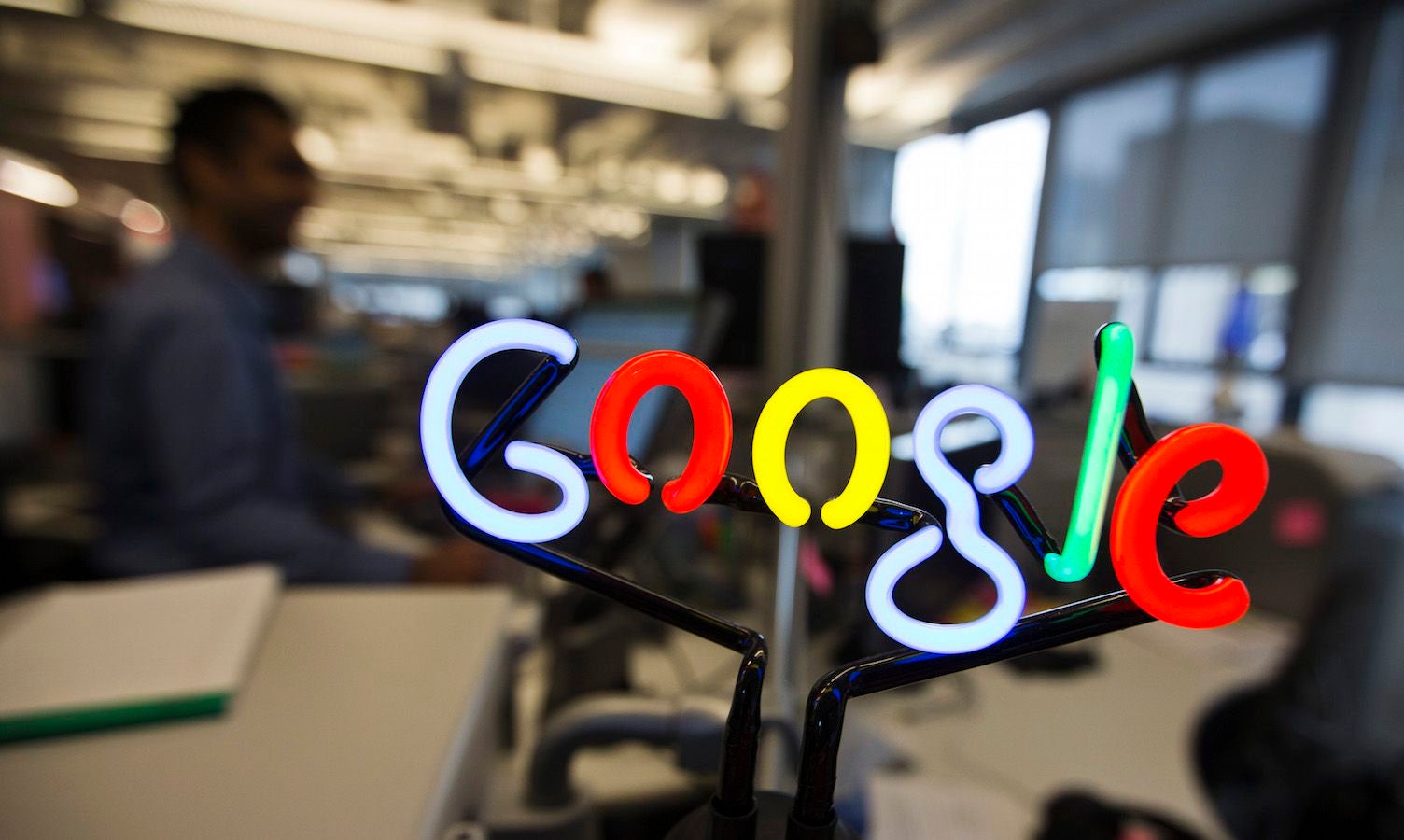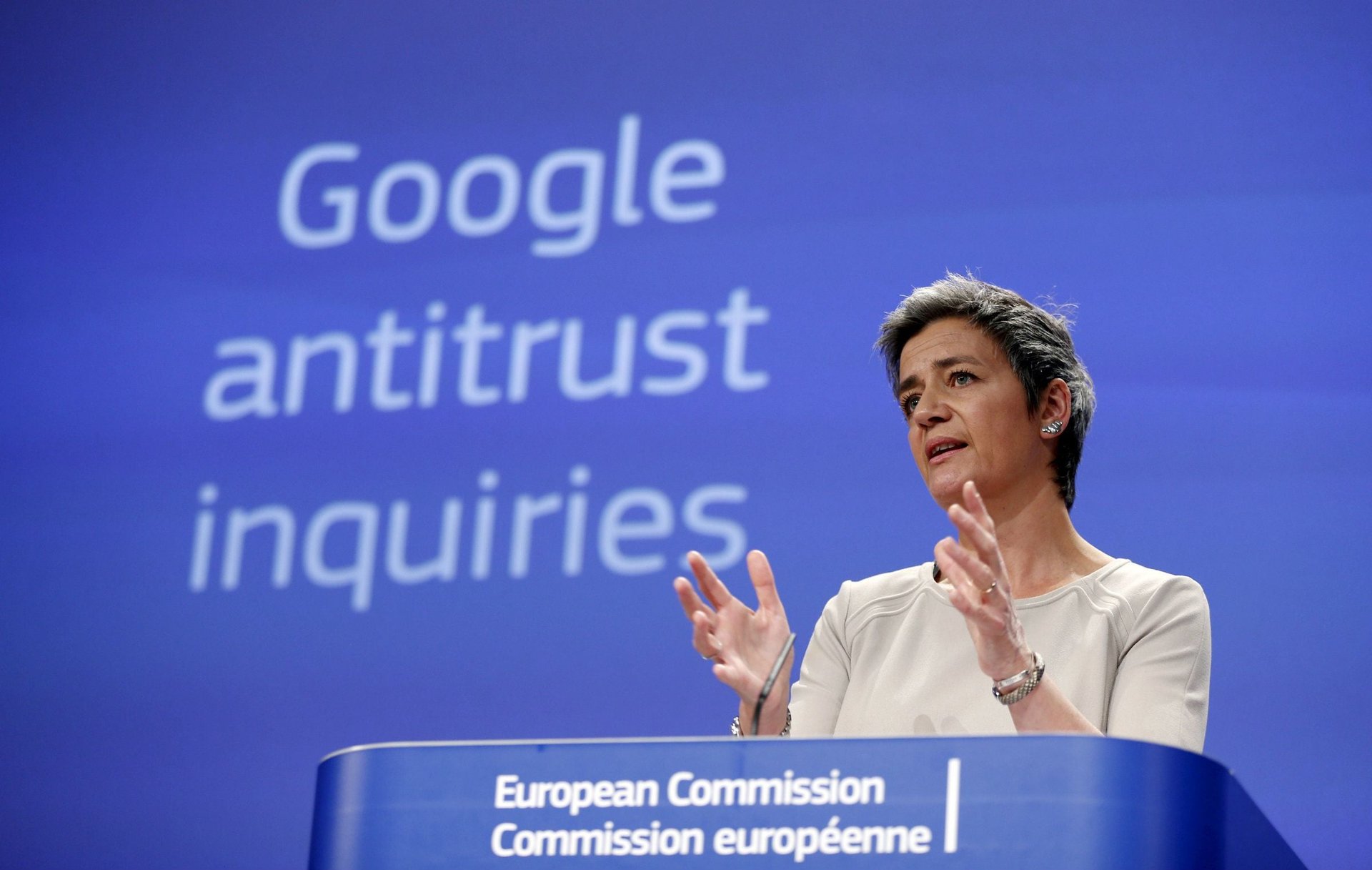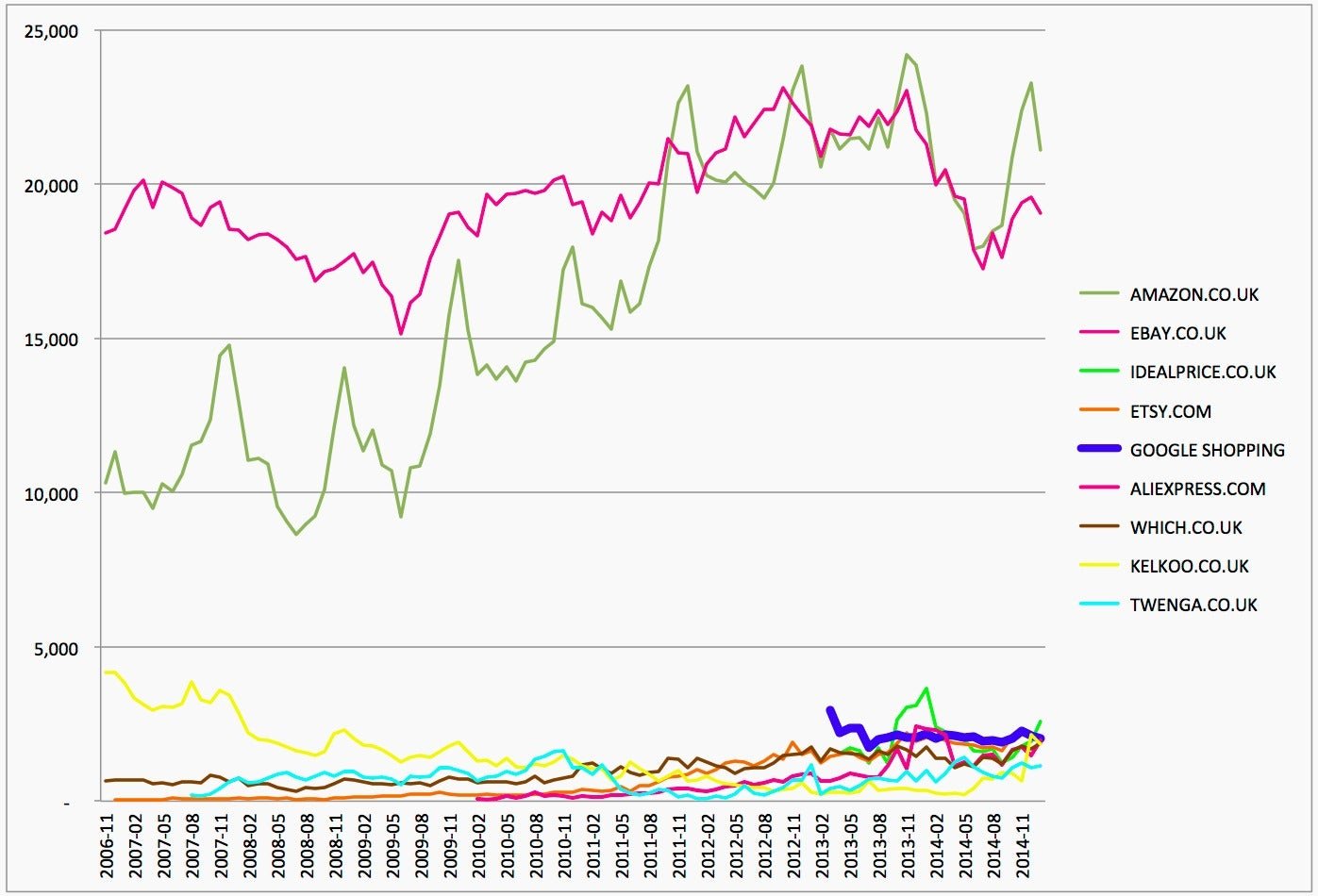Europe has formally accused Google of abusing its dominant position
The European Union has formally charged Google with favoring its own services over those of its rivals—adding its mobile operating system, Android, to the list of things the authorities are deeply unhappy about.


The European Union has formally charged Google with favoring its own services over those of its rivals—adding its mobile operating system, Android, to the list of things the authorities are deeply unhappy about.

The EU’s Competition Commission sent Google a “statement of objections” outlining the charges (all emphasis is the EU’s):
- Google systematically positions and prominently displays its comparison shopping service in its general search results pages, irrespective of its merits. This conduct started in 2008.
- Google does not apply to its own comparison shopping service the system of penalties, which it applies to other comparison shopping services on the basis of defined parameters, and which can lead to the lowering of the rank in which they appear in Google’s general search results pages.
- Froogle, Google’s first comparison shopping service, did not benefit from any favourable treatment, and performed poorly.
- As a result of Google’s systematic favoring of its subsequent comparison shopping services “Google Product Search” and “Google Shopping”, both experienced higher rates of growth, to the detriment of rival comparison shopping services.
- Google’s conduct has a negative impact on consumers and innovation. It means that users do not necessarily see the most relevant comparison shopping results in response to their queries, and that incentives to innovate from rivals are lowered as they know that however good their product, they will not benefit from the same prominence as Google’s product.
Google has 10 weeks to respond to the charges. A company-wide internal memo sent out last night sought to reassure Google employees: “We have a very strong case, with especially good arguments when it comes to better services for users and increased competition.” Google did not immediately respond to a request for comment.
Google’s head of search, Amit Singhal, made many of the same arguments from the memo in a post on Google’s European policy blog uploaded today:
If you look at shopping… it’s clear that (a) there’s a ton of competition (including from Amazon and eBay, two of the biggest shopping sites in the world) and (b) Google’s shopping results have not the harmed the competition.
He supported his argument with a graph:

“It’s why we respectfully but strongly disagree with the need to issue a Statement of Objections and look forward to making our case over the weeks ahead,” Singhal said.
This is only the beginning. The European Union’s investigation into Google covers four areas, of which search is only one. Other areas of concern include “copying rivals’ web content (known as “scraping”), advertising exclusivity, and undue restrictions on advertisers.” It did not indicate if and when charges would be filed for these areas.
To add insult to injury, the EU also announced the start of a formal investigation into Google’s Android operating system for smartphones, looking at whether Google abused its dominant position to hinder potential rivals.
Google also issued a response to the Android investigation. “We are thankful for Android’s success and we understand that with success comes scrutiny. But it’s not just Google that has benefited from Android’s success,” the head of engineering said.